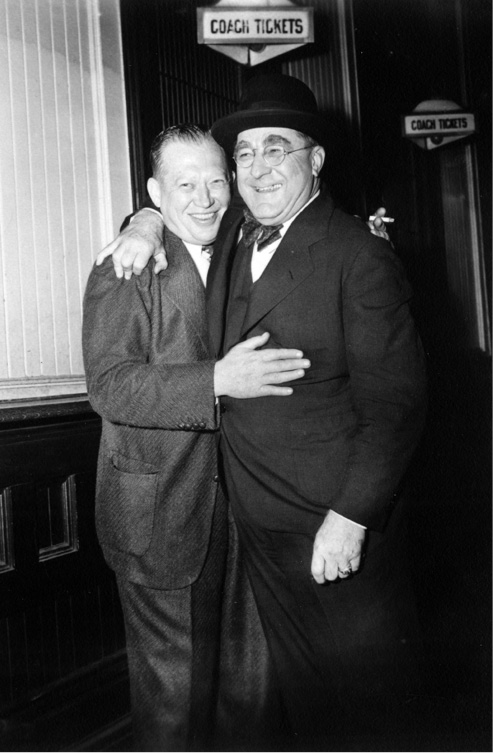Over three weeks in August 1959, Sports Illustrated published more than 15,000 words by writer Gerald Holland about a former major league general manager who had been out of work for a dozen years. “Warts and all” is a phrase that could have been invented for Larry MacPhail, an explosive character and front office rebel—not to mention rogue would-be kidnapper of Germany’s Kaiser Wilhelm near the end of World War I—who nonetheless gave birth to the Dodgers as a competitive franchise leading into the Boys of Summer years.
MacPhail came to Brooklyn during the 1937–38 off-season after helping introduce several innovations to the major leagues while with Cincinnati, including (against fierce resistance) night baseball. His entry into the sport had been as the president of a Columbus, Ohio, minor league team that he convinced a different kind of innovator, Branch Rickey, to purchase for the St. Louis Cardinals. Together, they could have put Oscar and Felix to shame as an odd couple, and not just because of their diametrically opposed feelings about alcohol.
“Whereas Rickey viewed the baseball business from a perspective of containing costs, MacPhail embodied the consumer component of modern capitalism,” wrote Jules Tygiel in Past Time: Baseball as History. “Revealingly, while MacPhail frequently spoke of ‘what the consumers want’ and the ‘fellow who sits out there in the bleachers,’ Rickey, the most quoted man in baseball history, left no remembered adages about fans.”

Dodgers president Larry MacPhail (left) and Branch Rickey (right) are all smiles at the 125th Street train station in New York City, circa 1942. MacPhail left the Dodgers to serve in World War II after the 1942 season and the Dodgers hired Rickey to replace him. Photo by Barney Stein. All rights reserved.
MacPhail’s impact in Brooklyn was instant and multifaceted: immediate renovations for Ebbets Field, the import of Red Barber to the broadcast booth, the introduction of batting helmets following a frightening Joe Medwick beaning, and on the roster, transactions that shook the Dodgers out a generation of doldrums. First baseman Dolph Camilli and future Hall of Famer Leo Durocher (who didn’t hit at shortstop but would become player-manager at age 33 in 1939) brought an initial dose of credibility to the team, soon complemented by a pair of 21-year-olds breaking in with Brooklyn in 1940—Pee Wee Reese and Pete Reiser. After finishing 62–91 the season before his arrival, the Dodgers improved to 69 wins in 1938, 84 in 1939, 88 in 1940, and 100 in 1941—the last season before World War II took its toll on baseball and the country.
His temper and drinking, as well as his disintegrating relationship with Rickey, who later replaced MacPhail as Dodgers GM following the ’42 season, are intrinsic to MacPhail’s legend. But most disheartening of all was his stance in 1945–46 against the impending promotion of Jackie Robinson and other Negro Leaguers to the major leagues.
“He condemned ‘political and social-minded drum-beaters for their efforts on behalf of integration,” Tygiel wrote. “Tellingly, MacPhail questioned the ultimate consequences of increased black attendance at the ballparks. Noting that Robinson’s presence in the International League had attracted thousands of black fans, MacPhail worried that ‘a situation might be presented...in which the preponderance of Negro attendance...could conceivably threaten the value of Major League franchises.’”
Though the demerits remain on his record, MacPhail’s pull on the game remains indisputable.
“If MacPhail came to me tomorrow,” former Dodgers board member James Mulvey told Holland, “with a proposition he had dreamed up, I’d be tempted to chuck everything and go in with him. I’d just like to be around him, to watch him work. MacPhail can make a success of anything he puts his mind to.”